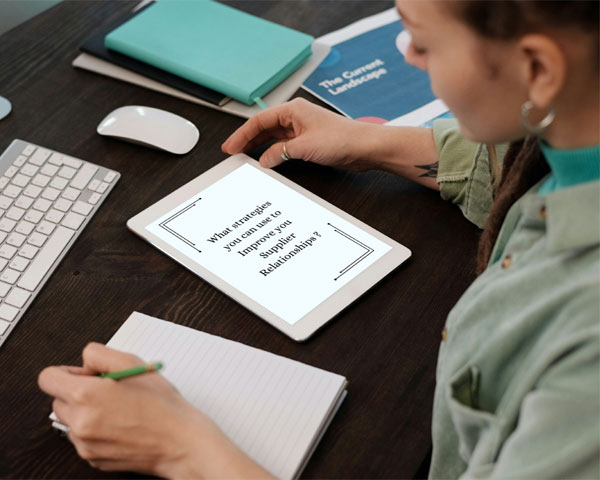Establishing and maintaining strong relationships with suppliers is crucial for businesses operating in the United Arab Emirates (UAE) to ensure the smooth flow of goods and services, enhance efficiency, and drive mutual growth. In this article, we’ll explore effective strategies that businesses can employ to improve supplier relationships in the UAE.
- Open Communication Channels:
- Foster transparent and open communication channels with suppliers to facilitate effective collaboration and problem-solving.
- Regularly communicate with suppliers regarding expectations, requirements, and any changes in business needs or market conditions.
- Encourage feedback from suppliers and address any issues or concerns promptly to prevent misunderstandings and build trust.
- Establish Clear Expectations:
- Define clear expectations and specifications for products or services required from suppliers, including quality standards, delivery schedules, and pricing agreements.
- Document agreements in written contracts or purchase orders to avoid ambiguity and ensure both parties are aligned on terms and conditions.
- Build Long-Term Partnerships:
- Focus on building long-term partnerships rather than viewing suppliers as transactional entities.
- Invest time and effort in understanding suppliers’ capabilities, values, and long-term goals to align interests and foster trust and loyalty.
- Explore opportunities for collaboration and joint initiatives that benefit both parties, such as product development or process improvement projects.
- Provide Timely Payments:
- Ensure timely payment of invoices to suppliers to maintain positive cash flow and demonstrate reliability and professionalism.
- Adhere to agreed-upon payment terms and communicate any delays or issues with suppliers proactively to avoid strained relationships.
- Offer Incentives and Recognition:
- Recognize and appreciate the contributions of key suppliers by offering incentives, such as volume-based discounts, early payment discounts, or exclusive partnership opportunities.
- Publicly acknowledge supplier achievements and contributions through awards, testimonials, or partnership showcases to reinforce positive relationships.
- Conduct Supplier Development Programs:
- Invest in supplier development programs aimed at enhancing suppliers’ capabilities, processes, and performance.
- Provide training, resources, and support to help suppliers improve quality, efficiency, and innovation, ultimately benefiting both parties.
- Monitor Performance and Provide Feedback:
- Regularly monitor supplier performance against predefined metrics and key performance indicators (KPIs) to identify areas for improvement.
- Provide constructive feedback to suppliers based on performance evaluations and collaborate on action plans to address any shortcomings or areas of concern.
- Embrace Technology and Collaboration Tools:
- Leverage technology and collaboration tools to streamline communication, procurement processes, and supply chain management.
- Implement digital platforms for order management, inventory tracking, and supplier relationship management to enhance efficiency and visibility across the supply chain.
Conclusion: Improving supplier relationships in the UAE requires a proactive and collaborative approach centered on open communication, mutual respect, and shared goals. By implementing these strategies, businesses can strengthen their partnerships with suppliers, drive operational excellence, and gain a competitive edge in the dynamic marketplace of the UAE.

